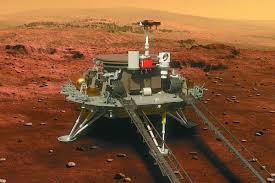
Breaking News
 Sunday FULL SHOW: Newly Released & Verified Epstein Files Confirm Globalists Engaged...
Sunday FULL SHOW: Newly Released & Verified Epstein Files Confirm Globalists Engaged...
 Fans Bash Bad Bunny's 'Boring' Super Bowl Halftime Show, Slam Spanish Language Performan
Fans Bash Bad Bunny's 'Boring' Super Bowl Halftime Show, Slam Spanish Language Performan
 Trump Admin Refuses To Comply With Immigration Court Order
Trump Admin Refuses To Comply With Immigration Court Order
 U.S. Government Takes Control of $400M in Bitcoin, Assets Tied to Helix Mixer
U.S. Government Takes Control of $400M in Bitcoin, Assets Tied to Helix Mixer
Top Tech News
 SpaceX Authorized to Increase High Speed Internet Download Speeds 5X Through 2026
SpaceX Authorized to Increase High Speed Internet Download Speeds 5X Through 2026
 Space AI is the Key to the Technological Singularity
Space AI is the Key to the Technological Singularity
 Velocitor X-1 eVTOL could be beating the traffic in just a year
Velocitor X-1 eVTOL could be beating the traffic in just a year
 Starlink smasher? China claims world's best high-powered microwave weapon
Starlink smasher? China claims world's best high-powered microwave weapon
 Wood scraps turn 'useless' desert sand into concrete
Wood scraps turn 'useless' desert sand into concrete
 Let's Do a Detailed Review of Zorin -- Is This Good for Ex-Windows Users?
Let's Do a Detailed Review of Zorin -- Is This Good for Ex-Windows Users?
 The World's First Sodium-Ion Battery EV Is A Winter Range Monster
The World's First Sodium-Ion Battery EV Is A Winter Range Monster
 China's CATL 5C Battery Breakthrough will Make Most Combustion Engine Vehicles OBSOLETE
China's CATL 5C Battery Breakthrough will Make Most Combustion Engine Vehicles OBSOLETE
 Study Shows Vaporizing E-Waste Makes it Easy to Recover Precious Metals at 13-Times Lower Costs
Study Shows Vaporizing E-Waste Makes it Easy to Recover Precious Metals at 13-Times Lower Costs
China Lands Mars Rover After "Nine Minutes Of Terror"

Late Friday night (or early Saturday morning in China), AP News confirmed that the rover, called Zhu Rong, successfully landed on the Red Planet via state media. "The scientific research team confirmed via the telemetry signal sent by the Zhu Rong Mars rover that on May 15, the Tianwen-1 Lander successfully landed in the pre-selected landing area in the Utopia Plain of southern Mars," CNSA said.
Landing on the Red Planet is dangerous - CNSA said it was "nine minutes of terror" as the lander descended toward the planet's surface at a high rate of speed, and the thin atmosphere didn't have enough friction to slow the descent.
Only NASA has reached the surface of Mars intact on multiple occasions. According to the diagram above, the lander relied on parachutes and rocket engines to slow the descent. This method is similar to NASA's, who has landed Curiosity and Perseverance rovers on Mars.
Global Times reported the spacecraft reduced its altitude from its typical orbital trajectory and began the descent around 1600 ET Friday (or about 0400 local time in China Saturday).
Chinese President Xi Jinping praised CNSA and said the mission was an essential step in China's space exploration.
An uncrewed Chinese spacecraft landed on Mars, making China the second nation after the U.S. to reach the planet https://t.co/K7IJGykKj5 pic.twitter.com/kI1E04f46p
— Reuters (@Reuters) May 15, 2021

 Smart dust technology...
Smart dust technology...

